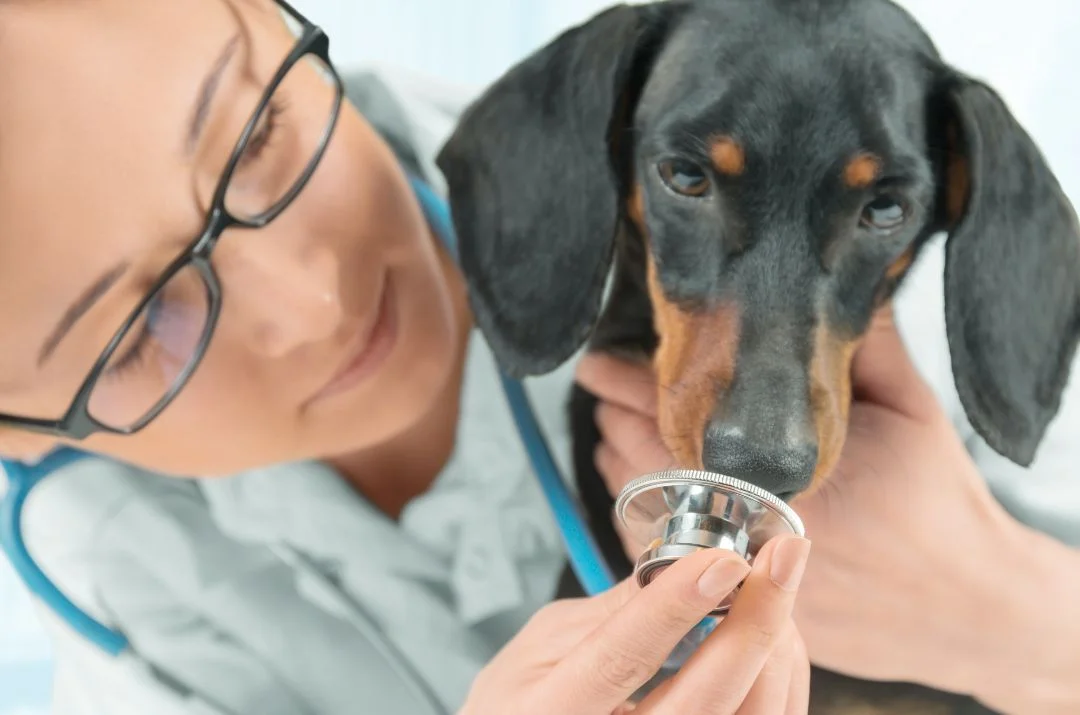Have you ever heard about dogs that can detect cancer in humans? It may sound like a tall tale, but there is actually a lot of scientific research backing up this claim. In this article, we will take a closer look at the latest research on whether dogs can smell cancer and how this amazing ability works.

- Contents:
- How do dogs detect cancer?
- What types of cancer?
- Latest research studies
- How accurate are dogs?
- Limitations and challenges
- Conclusion
How do dogs detect cancer?
Dogs have an incredible sense of smell that is thousands of times stronger than a human’s. They can detect scents that are far too faint for humans to even notice. Cancer cells release different metabolic waste products compared to healthy cells. Dogs can detect these chemical changes by smelling a person’s breath, urine, or skin.
What types of cancer?
Several studies have shown that dogs can detect a range of cancer types, including lung cancer, ovarian cancer, breast cancer, bladder cancer, and prostate cancer.
@8pawsclub ?Can Dogs Smell Cancer? The Incredible Canine Superpower You Need to Know About! Did you know that dogs have an incredible sense of smell that allows them to detect cancer in humans? In this TikTok video, we explore the fascinating topic of canine cancer detection #8pawsclub #dogs #cancerdetection #cancersmell #caninesenses #earlycancerdetection #healthylifestyle #healthcare #pethealth #doghealth #cancertreatment #medicalresearch #animalassistedtherapy #veterinarymedicine #cancerprevention #cancerawareness #pettherapy #doglovers #furryfriends #companionship #health #wellness #humananimalbond #cancermortality #diseaseprevention #petcompanionship #furryfamily #petlife #cancerdiagnosis #cancertest #cancercare
♬ original sound – Dog Behavior, Training &Health – Dog Behavior & Welfare Trainer
Latest research studies
Recent research has further confirmed the ability of dogs to detect cancer in humans. A study published in the journal “Cancer Biotherapy and Radiopharmaceuticals” found that trained dogs were able to correctly identify blood samples from patients with lung cancer with 97% accuracy.
Another study published in “Gut” found that dogs were able to detect bowel cancer with 95% accuracy by smelling a person’s breath.
How accurate are dogs?
While the accuracy of dogs in detecting cancer varies depending on the type of cancer, the stage of the cancer, and the training of the dog, several studies have shown that dogs can detect cancer with a high degree of accuracy. In a study published in “The Journal of Urology,” dogs were able to correctly identify urine samples from patients with bladder cancer with 90% accuracy.

Limitations and challenges
While dogs have shown promising results in detecting cancer, there are also limitations and challenges to using them in a clinical setting. One major limitation is the need for extensive training and standardization to ensure the accuracy of results. Additionally, the cost and time required to train dogs to detect cancer can be prohibitive.
| Cancer Type | Dog Detection Accuracy? | Medical Detection Accuracy? |
|---|---|---|
| Lung? | 97% | 70% |
| Ovarian? | 98% | 68% |
| Prostate? | 98% | 70% |
Conclusion
In conclusion, the latest research shows that dogs have an incredible ability to detect cancer in humans. While there are still some limitations and challenges to using dogs in a clinical setting, the potential benefits of this technology are enormous. Dogs could offer a low-cost, non-invasive, and highly accurate way to detect cancer in its early stages. With further research, it is possible that we could see dogs playing a more prominent role in cancer detection and treatment in the future.
FAQ
Can all dogs detect cancer?
No, not all dogs are trained to detect cancer. Specific breeds such as German Shepherds, Labrador Retrievers, and Golden Retrievers are often used for this purpose.
How long does it take to train a dog to detect cancer?
Training a dog to detect cancer can take up to two years and requires a lot of time, patience, and resources.
Can dogs detect cancer in its early stages?
Yes, studies have shown that dogs can detect cancer in its early stages, which is one of the most promising aspects of this technology.
How does a dog indicate that they have detected cancer?
Dogs can indicate the presence of cancer through various behaviors, such as pawing, nudging, or sitting in front of the person with cancer. They can also be trained to alert their handler in specific ways, such as barking or lying down.
Are there any risks associated with using dogs to detect cancer?
No, there are no known risks associated with using dogs to detect cancer. However, it is important to note that dogs should not be used as a replacement for standard medical tests and screenings.
How can dogs be integrated into cancer detection and treatment?
Dogs can be used as a complementary tool to standard medical tests and screenings, particularly in cases where early detection is crucial. They can also be used to identify specific cancer biomarkers, which could lead to the development of new diagnostic tools and treatments.
Is there ongoing research in this area?
Yes, there is ongoing research in this area, and many researchers are working to improve the accuracy and reliability of dog detection methods. Additionally, some researchers are exploring the use of electronic nose devices that mimic a dog’s sense of smell.




